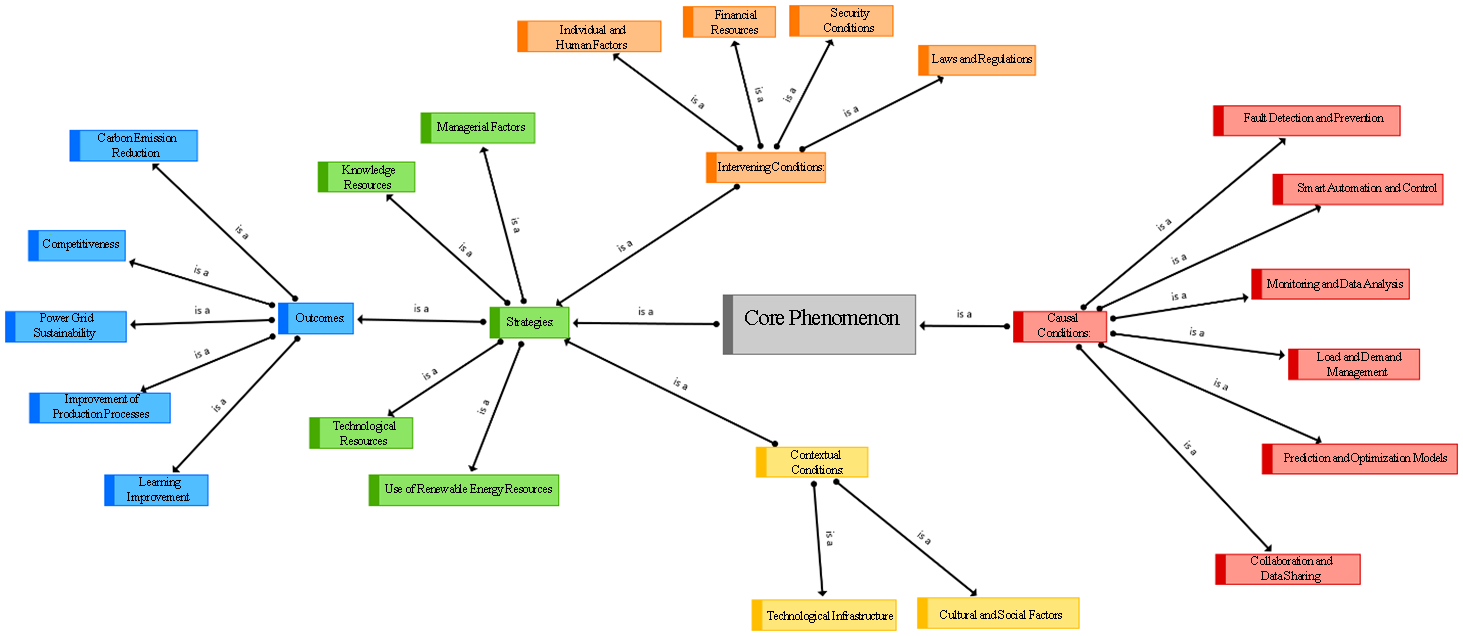Providing a Model for Enhancing Energy Consumption Efficiency in Industrial Units Based on Artificial Intelligence
Keywords:
energy consumption, energy consumption efficiency, artificial intelligence, industrial electricityAbstract
Improving electricity consumption efficiency in industrial units using advanced technologies, particularly artificial intelligence, has become a crucial factor in reducing operational costs and increasing productivity. The objective of this study was to provide a model for enhancing the efficiency of electricity consumption in industrial units based on artificial intelligence. This study is applied in terms of research objective and qualitative in methodology, adopting a grounded theory approach. Methodological triangulation was observed in this research through various data collection methods, such as literature reviews, examination of specialized sources and texts, as well as semi-structured interviews. Based on purposive sampling, interviews were conducted with 14 managers and experts from companies active in the electricity industry in 2024. The conducted interviews were coded using ATLAS.TI software. To validate the results obtained, data were evaluated and analyzed for validity based on triangulation. Based on the analysis, six causal conditions (monitoring and data analysis, predictive and optimization models, intelligent automation and control, load and demand management, failure detection and prevention, and collaboration and data sharing), two contextual conditions (technological infrastructure and sociocultural factors), four intervening conditions (regulations and laws, individual and human factors, financial support, and security conditions), four strategies (technological resources, knowledge resources, use of renewable energy sources, and managerial factors), and five outcomes (improvement of production processes, enhanced learning, power grid sustainability, carbon emission reduction, and competitiveness) were identified. Improving electricity consumption efficiency in industrial units through artificial intelligence provides unique opportunities to reduce costs, increase efficiency, and protect the environment. Artificial intelligence systems help identify weaknesses and offer optimization solutions by accurately analyzing data and recognizing energy consumption patterns. These technologies can automatically apply optimal settings to prevent energy waste, directly resulting in reduced operational costs.












